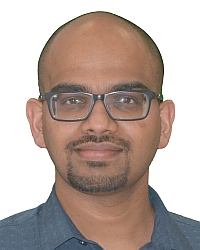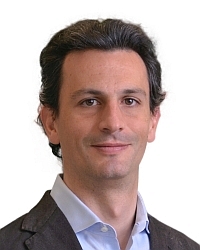TR2024-092
Decoupled Trajectory Planning for Monitoring UAVs and UGV Carrier by Reachable Sets
-
- , "Decoupled Trajectory Planning for Monitoring UAVs and UGV Carrier by Reachable Sets", American Control Conference (ACC), DOI: 10.23919/ACC60939.2024.10644642, July 2024, pp. 587-593.BibTeX TR2024-092 PDF
- @inproceedings{Kim2024jul,
- author = {Kim, Taewan and Vinod, Abraham P. and {Di Cairano}, Stefano},
- title = {{Decoupled Trajectory Planning for Monitoring UAVs and UGV Carrier by Reachable Sets}},
- booktitle = {American Control Conference (ACC)},
- year = 2024,
- pages = {587--593},
- month = jul,
- publisher = {IEEE},
- doi = {10.23919/ACC60939.2024.10644642},
- url = {https://www.merl.com/publications/TR2024-092}
- }
- , "Decoupled Trajectory Planning for Monitoring UAVs and UGV Carrier by Reachable Sets", American Control Conference (ACC), DOI: 10.23919/ACC60939.2024.10644642, July 2024, pp. 587-593.
-
MERL Contacts:
-
Research Areas:
Abstract:
We consider the trajectory generation for a UGV and multiple UAVs that are tasked with monitoring certain specified target areas, where the former carries and re-charges the latter ones. We decouple the motion planning of UGVs and UAVs using reachable sets constructed from Lyapunov functions. The reachable sets are used as constraints for UGV trajectory generation resulting in existence guarantees of feasible UAVs trajectories with respect to flight and energy constraints. The reachable sets also provide an initial trajectory for UAVs rendezvous from and launch to the targets, which may be refined by optimization. We show simulation results of a case study with multiple UAVs monitoring multiple target sites.
Related News & Events
-
NEWS Abraham Vinod Delivers Invited Talks at The University of Texas at Austin and The University of Texas at Dallas Date: November 11, 2025 - November 13, 2025
MERL Contact: Abraham P. Vinod
Research Areas: Artificial Intelligence, Control, Dynamical Systems, Machine Learning, Optimization, RoboticsBrief- MERL researcher Abraham Vinod was invited to present MERL's latest research at the University of Texas at Austin and The University of Texas at Dallas this November. His talk discussed a tractable set-based method for a broad class of robust control problems with nonlinear dynamics and bounded uncertainty, with applications to powered descent guidance and drone motion planning problems. Additionally, he also presented MERL's recent research on environmental monitoring using hetereogenous robots, with applications in disaster management and search-and-rescue.
-
NEWS MERL researchers present 9 papers at ACC 2024 Date: July 10, 2024 - July 12, 2024
Where: Toronto, Canada
MERL Contacts: Vedang M. Deshpande; Stefano Di Cairano; Christopher R. Laughman; Arvind Raghunathan; Abraham P. Vinod; Yebin Wang; Avishai Weiss
Research Areas: Artificial Intelligence, Control, Dynamical Systems, Machine Learning, Multi-Physical Modeling, Optimization, RoboticsBrief- MERL researchers presented 9 papers at the recently concluded American Control Conference (ACC) 2024 in Toronto, Canada. The papers covered a wide range of topics including data-driven spatial monitoring using heterogenous robots, aircraft approach management near airports, computation fluid dynamics-based motion planning for drones facing winds, trajectory planning for coordinated monitoring using a team of drones and a ground carrier vehicle, ensemble Kalman smoothing-based model predictive control for motion planning for autonomous vehicles, system identification for Lithium-ion batteries, physics-constrained deep Kalman filters for vapor compression systems, switched reference governors for constrained systems, and distributed road-map monitoring using onboard sensors.
As a sponsor of the conference, MERL maintained a booth for open discussions with researchers and students, and hosted a special session to discuss highlights of MERL research and work philosophy.
In addition, Abraham Vinod served as a panelist at the Student Networking Event at the conference. The student networking event provides an opportunity for all interested students to network with professionals working in industry, academia, and national laboratories during a structured event, and encourages their continued participation as the future leaders in the field.
- MERL researchers presented 9 papers at the recently concluded American Control Conference (ACC) 2024 in Toronto, Canada. The papers covered a wide range of topics including data-driven spatial monitoring using heterogenous robots, aircraft approach management near airports, computation fluid dynamics-based motion planning for drones facing winds, trajectory planning for coordinated monitoring using a team of drones and a ground carrier vehicle, ensemble Kalman smoothing-based model predictive control for motion planning for autonomous vehicles, system identification for Lithium-ion batteries, physics-constrained deep Kalman filters for vapor compression systems, switched reference governors for constrained systems, and distributed road-map monitoring using onboard sensors.

